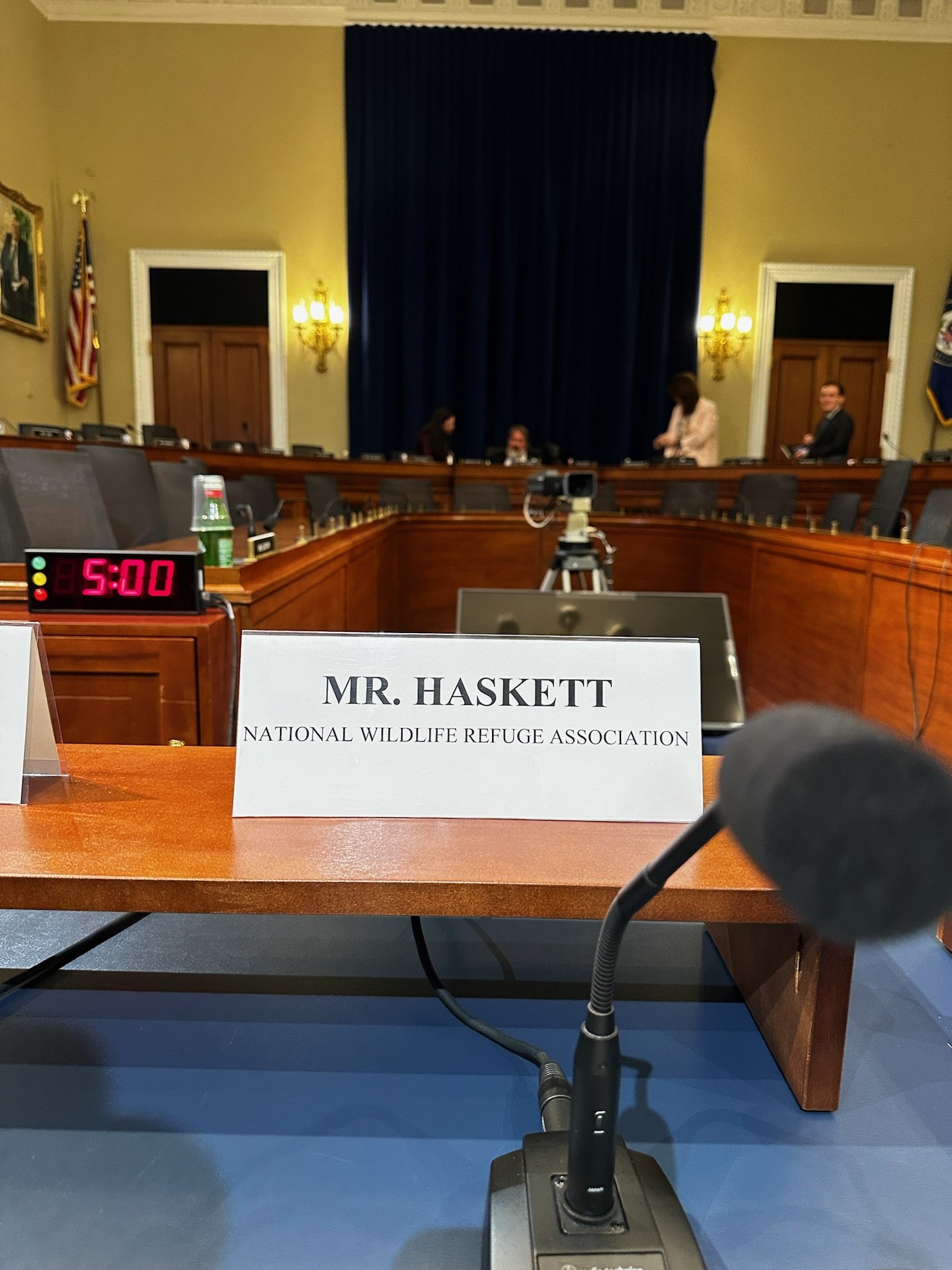📷 Cherry blossoms at peak bloom at the Tidal Basin in Washington, D.C. | National Park Service
This week, President Geoffrey Haskett of the National Wildlife Refuge Association testified before Congress on the proposed revisions to the Biological Integrity, Diversity, and Environmental Health (BIDEH) rule for the National Wildlife Refuge System. You can watch the full testimony below.
The BIDEH Rule: A Step in the Right Direction
The Refuge Association supports the U.S. Fish and Wildlife Service's (USFWS) efforts to update the BIDEH policy. These revisions aim to address current conservation challenges and ensure the health of national wildlife refuges in the face of climate change and habitat loss.
President Geoffrey Haskett emphasized the importance of a well-funded Refuge System during his testimony. He underscored that:
““In considering the mandate to ensure BIDEH under the Improvement Act, it is important to recognize that the ability to implement management activities to ensure BIDEH successfully has been stymied by over a decade of a severe lack of funding and resources. Any discussion about the Refuge System must consider the reality that steadily increasing funding needs paired with insufficient budgets has led to a Refuge System that is quickly eroding in habitat management and an ability even to keep refuges open. Understanding these impacts is necessary to begin addressing the significant challenges facing our native wildlife and ensure the health and integrity of the Refuge System well into the future.””
The Funding Challenge: A Looming Obstacle
For years, national wildlife refuges have grappled with declining budgets, which have resulted in the following:
Reduced habitat management: Less funding translates to less ability to maintain healthy ecosystems that support wildlife populations.
Staffing shortages: With limited resources, retaining and recruiting qualified personnel for crucial management positions becomes difficult.
Limited adaptation capabilities: A lack of funds hinders efforts to adapt to challenges like climate change, invasive species, and habitat fragmentation.
The Refuge Association urges Congress to prioritize the Refuge System and address these funding challenges. Robust investments are essential to equip the USFWS with the resources to implement the BIDEH rule effectively and ensure these protected areas remain havens for wildlife for generations.
The Refuge Association submitted detailed written testimony to the House Committee on Natural Resources outlining our position on the BIDEH rule and the critical need for increased funding. You can access the full testimony here.
How You Can Help:
Please take action and submit your own public comment by the May 6th deadline in support of the BIDEH proposed rule and the proper funding and staffing of the National Wildlife Refuge System.
Share this blog post to spread awareness about the importance of the BIDEH rule and the funding challenges facing national wildlife refuges.
Consider donating to the National Wildlife Refuge Association. Your support will help us continue to advocate for these vital lands and the wildlife they sustain.
The National Wildlife Refuge Association stands firmly behind a healthy and robust National Wildlife Refuge System. The BIDEH rule is a positive step in the right direction for national wildlife refuges. However, for the BIDEH rule to be successful, adequate funding and staffing levels are required. The Refuge Association will continue to be a relentless advocate for national wildlife refuges, and we will stop at nothing to ensure they have the resources they need to thrive.


